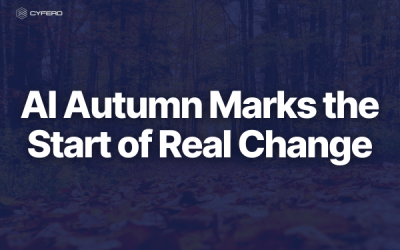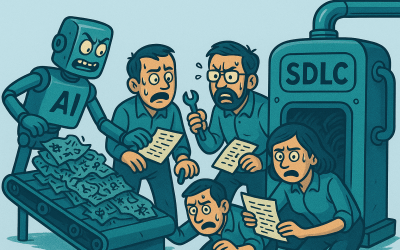“What will the university of the future look like?”
We believe that artificial intelligence (AI) will play a pivotal role in this transformation and is fundamental in reshaping higher education. The university of the future will not be devoid of human interaction, instead, it will seamlessly integrate the capabilities of AI with the irreplaceable value of in-person learning, mentorship, and peer collaboration. In fact, AI can help free up educators to spend more time engaging with students on a personal level, providing guidance, and fostering critical thinking skills.
In the university of the future, AI takes centre stage, transforming higher education in several ways:
Personalized Learning: AI algorithms can be used to analyze students’ learning behaviours and progress, allowing educators to intervene and provide support where needed. For example, AI can be used to identify students who are struggling with a particular concept and to recommend additional resources. AI can also be used to combine data from multiple sources, such as academic performance, counselling attendance, and extracurricular activities, to create a more holistic view of each student’s needs. This information can then be used to help educators provide tailored support to students facing academic, social, or emotional challenges.
New ways of teaching and learning: AI is also changing the way that we teach and learn. AI-powered virtual reality (VR) and augmented reality (AR) simulations can be used to provide students with immersive learning experiences. For example, AI-powered VR and AR simulations can be used to provide students with immersive learning experiences that would not be possible in the traditional classroom setting. Students could use VR to explore historical sites or to dissect virtual cadavers. AI can also be used to create interactive and engaging learning materials, such as games and simulations.
Enhanced Research: AI can help researchers sift through vast datasets, uncover connections, and identify hidden patterns, fostering global collaboration and productivity. For example, AI can be used to identify patterns in medical data that could lead to new drug discoveries or to develop new climate models. AI can also be used to automate repetitive tasks, such as data entry and analysis, freeing up researchers to focus on more creative and strategic work.
Chatbots and Virtual Assistants: AI chatbots can automate many administrative tasks, such as class registration, financial aid inquiries, and student support. This can free up human staff to focus on more complex tasks and to provide more personalized support to students. AI chatbots can provide students with immediate assistance with their questions and concerns and can collect data on student interactions and feedback to develop new programs or services that meet the needs of students.
Advanced grading: AI-powered plagiarism detection tools are helping universities to prevent cheating and to ensure the integrity of their academic work. AI grading tools are also helping professors to save time and to provide students with more feedback on their work. For example, AI grading tools can be used to assess student essays for grammar, style, and content.
These are just a few examples of how AI can and is being used in universities today. As AI technology continues to develop, we can expect to see even more innovative and transformative uses of AI in higher education in the years to come.
As we move forward, embracing AI can enhance the learning experience and unlock the full potential of both students and educators. While challenges remain, the opportunity for a vastly improved educational system is too promising to ignore. The university of the future is one where AI and humans work in harmony to create a more dynamic, engaging, and adaptable learning environment.
Are You on the BOAT or Ready to Jump Ship?
AI Autumn Marks the Start of Real Change
Stakeholder Buy-In: How to Start Small & Scale Fast
Shadow AI Exposed: Protect Your Data Before It’s Gone
Help Your Team Embrace AI-Driven Process Changes
Not another ’why do digital transformation projects fail’ blog
5 Ways to Get User Adoption Right
AI Can Code. But Can It Ship? The Challenges of AI Code Generation
Fix the Flow: How to Unblock Broken Business Processes Fast
How to Be a Digital Vanguard: CIO Priorities for 2025
Cyferd in the Press
As seen in
Let’s Get Started
Ready to Drive Transformation?
New York
Americas Tower
1177 6th Avenue
5th Floor
New York
NY 10036
London
2nd Floor,
Berkeley Square House,
Berkeley Square,
London W1J 6BD



















